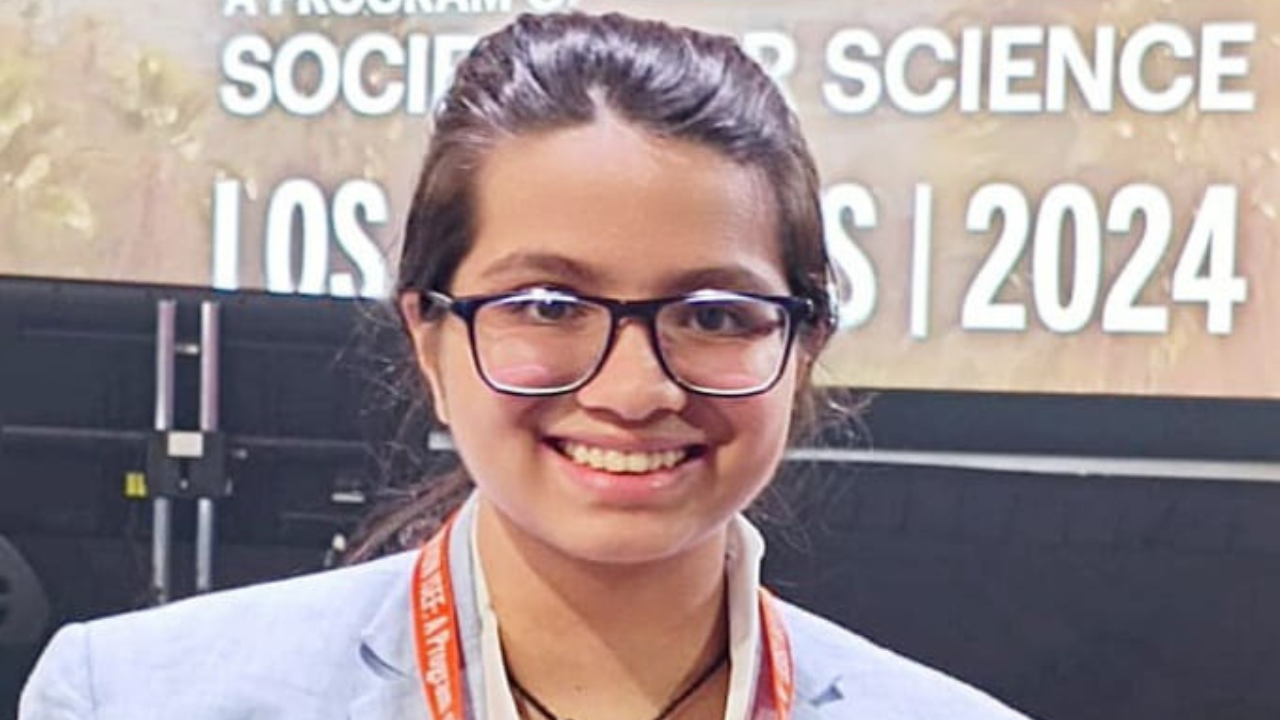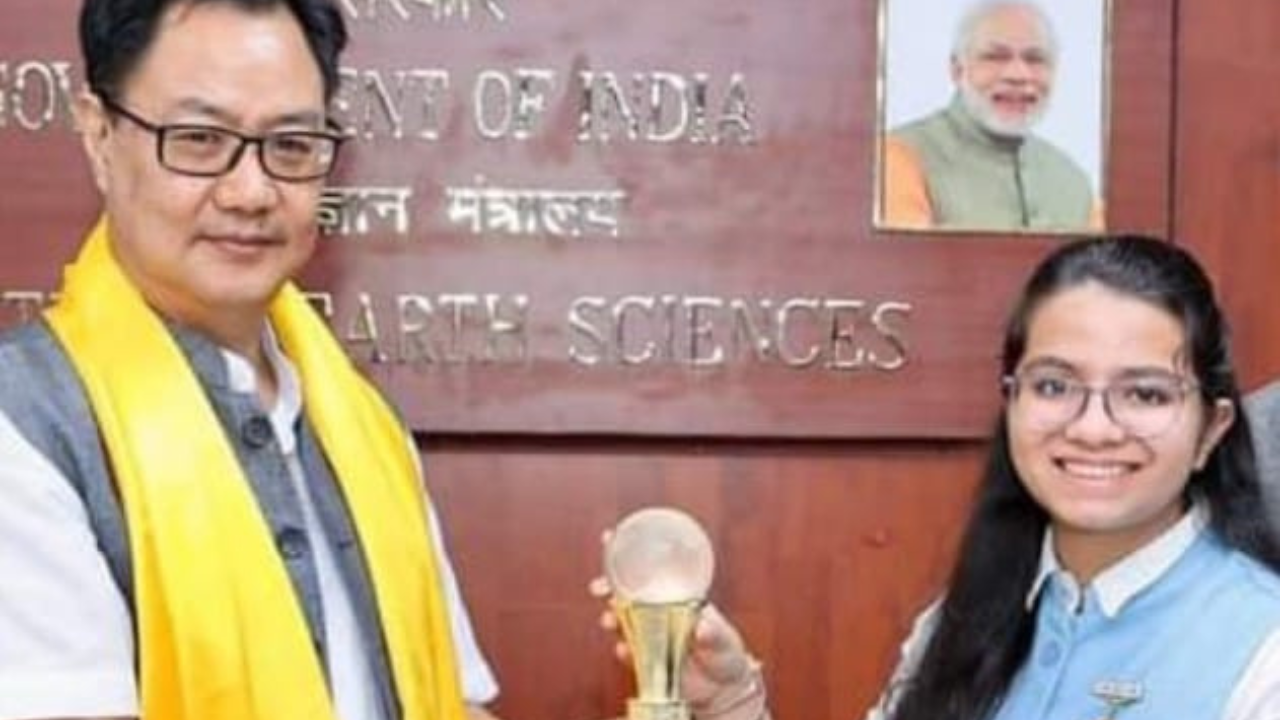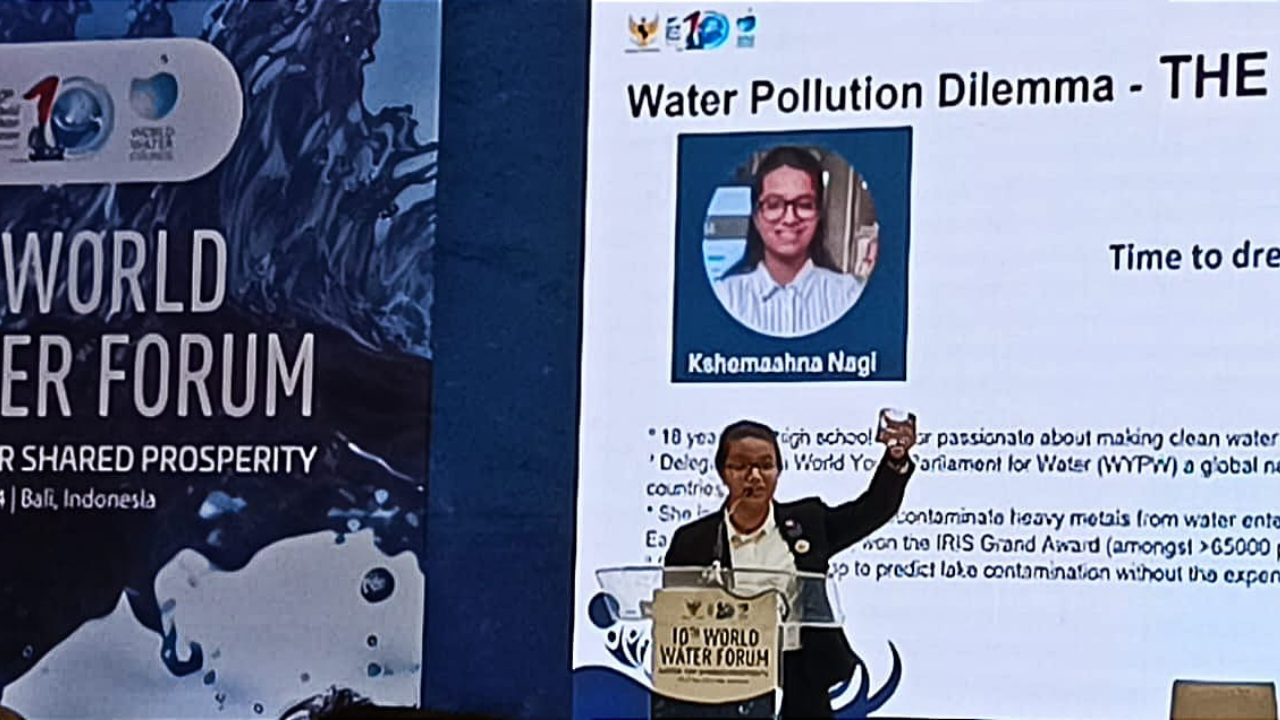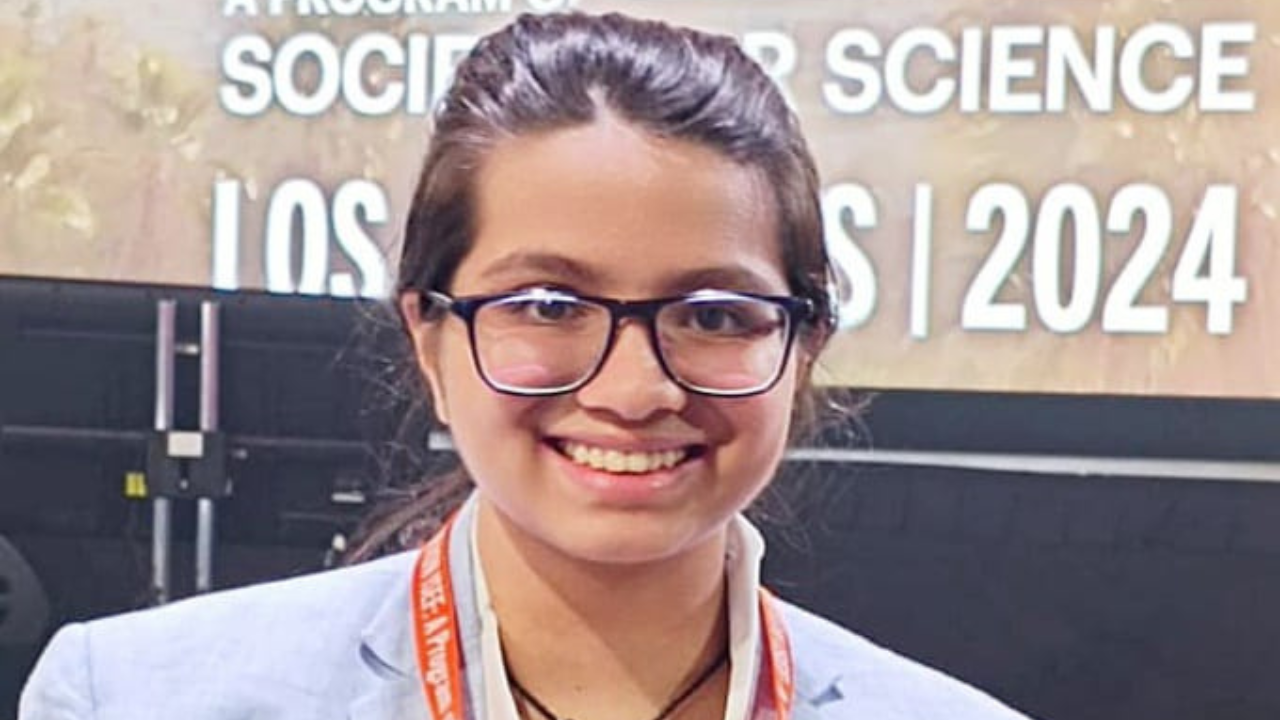
Kshemaahna Nagi Accepting her USAID’s Science for Development Award
When we think about excellence in scientific research, California Institute of Technology or Caltech is the name that is not alien to anyone. Among the top Universities of USA, Caltech is extremely competitive to get into. This year’s class size is the smallest ever with just about 235 students who have been selected. Of these, only 20 international students have been admitted, making the acceptance rate of just above 1% for international students. Bengaluru’s Kshemaahna Nagi, however, has not only made India proud by being of the select few but also received the prestigious Caltech International Grant (100% needs met) which is equivalent to a 100 per cent needs scholarship.
The Caltech International Grant is a unique all needs met scholarship which pays for the entire tuition and stay expenses of the student. Getting it, however, is no walk in the park. One has to be exceptionally good to get admission and to get a grant that exception has to be beyond the ordinary. Kshemaahna, a student of Bengaluru’s Vidyashilp Academy has been an outstanding student throughout. She was awarded the National Merit Rank 4 in her ICSE Class 10 Board Results.
As she gets ready to start her journey to her dream college, Times Now reached out to her to congratulate her and urge her to share her success story with us. Check out excerpts from an exclusive interaction with Kshemaahna.
First off, many congratulations on your stupendous success. Caltech has one of the most stringent admission process and has an extremely competitive acceptance rate of just about 1 to 3 per cent. Let us start with the very basic question, why Caltech?
I have always been fascinated with Science and STEM education and for a long time have been clear about finding a career in research. And when we think of research opportunities Caltech is the best institute for STEM-related fields. It has the best state of the art labs like LIGO and NASA’s Jet Propulsion Laboratory. Also, Resnick Sustainability Institute which is working on artificial photosynthesis for fuel generation and things like that. Basically, the research opportunities in Caltech are frankly unparalleled. What perhaps truly marks it as an exceptional institution is the incredibly small size. I think this year’s class is only 235 students and the general student-faculty ratio is three to one.Plus you get to work with actual Nobel laureates, working on cutting edge research. I think Caltech has the highest number of Nobel laureates per capita, with like five actual Nobel laureates on campus, who I can like go up to and talk to about their research and things like that.
So I think that’s one of the biggest reasons that…
You sound so excited by research. Did you always want to go abroad or did you consider institutes in India as well?
Not always but yes from a very early age I knew I wanted to be in research and yes I was excited by Universities abroad. I am not saying India does not have good research institutes. I mean, Indian Institute of Sciences, IISc where I actually spent considerable time is one of the best research institutes. However, the lack of interdisciplinary streams and opportunities is what inclined me towards US universities.
I’m really passionate about art and writing. And an education abroad would give me the opportunity to pursue both of those passions, along with my passion for STEM as well.

But getting into Caltech is not easy. Simply academic excellence is not enough. What all is it that you have done that you think helped you in finding a place at Caltech?
Frankly I think it was a lot of it and I truly can’t pin point what was it that helped me. Maybe it was all of it. But largely I think it was my honest passion towards research. I have been actively involved in research for over two years now. I was recommended by my school to be a part of the Advanced Study Circle at IISc Bengaluru. The initiative helps high school students explore topics from an undergraduate level in maths and science. And we also learn about the cutting edge research in different departments being done at the institute. I was also involved I also did a summer science program at IISER.
Apart from these, I also took part in various international level Olympiads and Science Fairs. I represented India at the International Earth Science Olympiad where I won five awards – two golds and silvers, and one outstanding mention. I also recently went to the Regeneron ISEF(International Science and Engineering Fair).It’s held in USA and is one of the biggest, most prestigious science and engineering fair for anybody in high school. From 70 countries, I was chosen to represent India where I won a prize from the United States Agency of International Development, which is the first place award for science for society and development, as well as the third place award for environmental engineering.
And besides that, I’m also a Non-Trivial fellow and a Generation Google Scholarship recipient. So yeah, that’s a little bit of what I did and I am sure it all helped.
It’s hardly a little bit. It is very evident you truly enjoy science.
Yes ma’am, I’ve really enjoyed science since a young age. What I find interesting about science is, the scientific method itself, because it can be applied to everything, not just science. The process of making a hypothesis and then trying to test it on the basis of what you have learnt. I think scientific method applies to everything in life and allows me to keep learning and keep changing what my view of the world.
I still remember this famous quote of Enrico Fermi. He said, “If your results match your hypothesis, you’ve made a measurement. But if your results differ from the hypothesis, you’ve made a discovery!”And this is what fascinates me about science and about research – embracing the unknown and hopefully turning your knowledge into wisdom for the future generations.

*Kshemaahna at UNESCO 10th World Water Forum
Individual research, international competitions and advance study circles, these are all time intensive activities. And your list of achievements is more than merely impressive. You have to your merit, among others, First Place Science for Development Award given by USAID (United States Agency for International Development), the distinction of being the youngest speaker and researcher at the UNESCO 10th World Water Forum, winner of Generation Google Scholarship (2024), winner of Gold Honor of International Astronomy and Astrophysics Competition…and the list goes on. How did you manage to do all of this in your given 24 hours while managing your school and regular board exams?
It may sound contrary to many but I truly believe it’s all God’s grace. I have always been part of ISKCON (International Society for Krishna Consciousness) and they emphasize on believing in Lord Krishna as well as praying to him and chanting so that you’re both emotionally grounded, spiritually centred, and you can do your duty or your work or karma with more focus, more attention. That’s the complete message of the Gita, to be detached from what you’re doing, in the sense that you don’t expect anything out of it, but you’re doing the best you can and then dedicate it to God. So, I think that’s what I’ve been trying to or at least striving to do. It has helped me balance everything so that I can just give it my 100% and then leave the rest to God.
Applying to colleges abroad is not a simple task. Who helped you in your study abroad journey?
I have my parents, family, Principal and teachers to thank for helping me with my dream of Caltech. My mother has been my greatest help and support. As an educator herself, she was always guiding me and helping me. She motivated me not only to achieve my academic goals but also to delve and nurture my other interests like art and writing while helping me find balance by introducing and inculcating within me the discipline of Yoga and meditation. She travelled with me to various places and has been my biggest guide and mentor in my journey.
What are your future plans?
I wish to make a career in Computer Science along with Geological and Planetary Science and see myself involved in cutting edge research and being a part of the process of knowledge creation. I am keen on focussing on improving the quality of life for a lot of people. I have been working on some impactful projects already like for instance an interface that predict the levels of heavy metal contamination in lakes. Then I am also very passionate about computer science.
I think computer science as a discipline is a very useful tool for advancing the frontiers of knowledge in all fields. It’s ubiquitous and an integral part of almost all of the research I’ve done. So I am keeping an open mind. I can honestly say that I am keen to explore.
Any words or advice for students who also aspire to study abroad?
If there are people who are looking to study abroad at big research institutions, then I would say that they should be motivated by curiosity, mainly, and not by convention. So, follow your passions, even if it’s in fields that might seem superficially disparate, because all of the interesting work happens at the intersection of seemingly disjoint fields.
